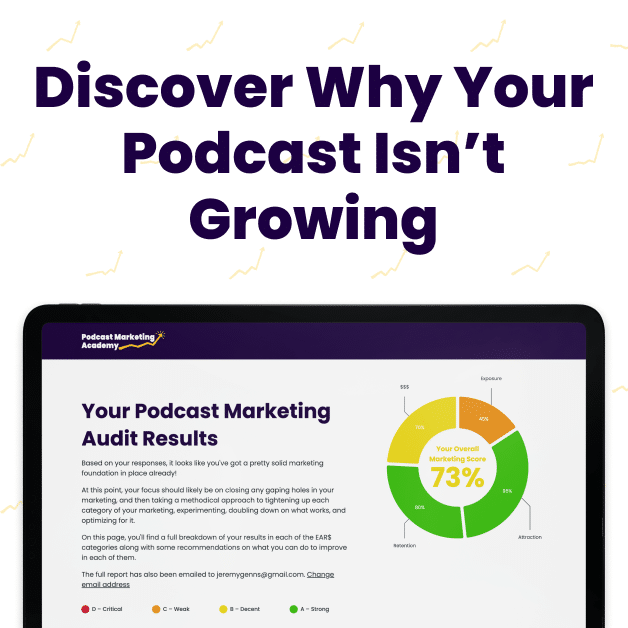Imagine for a moment that The Beatles had never written and released the song Hey Jude.
Would they still be as popular and culturally influential without it?
The song is not only one of the band’s most popular songs, but one of the most popular songs.
Of all time.
Period.
Despite its impact and popularity, I’d argue that the absence of Hey Jude from their catalogue would have no impact at all on The Beatles reputation and relevance.
The reason is that like most artists, we judge and remember The Beatles more for their collective body of work than for any one song, no matter how big a hit it might have been.
The same idea applies to your podcast.
With each new episode, you add to your ever-growing body of work.
Whether or not you’re aware of it, your body of work says something about you. Your opportunity, then, is to intentionally craft the narrative you want your body of work to communicate.
Want to be known as a great interviewer? Let your body of work reflect it.
An original thinker? Show us.
An effective problem solver? Prove it.
Whatever your aspirations, your body of work is your chance to demonstrate your chops.
It’s a double-edged sword, however.
It’s much easier to write a podcast description that includes the phrase “life-changing interviews with everyday people” than it is to actually create that show.
A cursory examination of your body of work makes plain to anyone your ability to deliver on the promise you’ve made.
The good news is that each episode of your podcast presents an opportunity to nudge the message your body of work sends in a different direction.
Don’t like what your existing body of work says about you? Dedicate your next 20 podcast episodes to changing it.
You control the narrative.
But first, you need to know what you’re trying to say.





